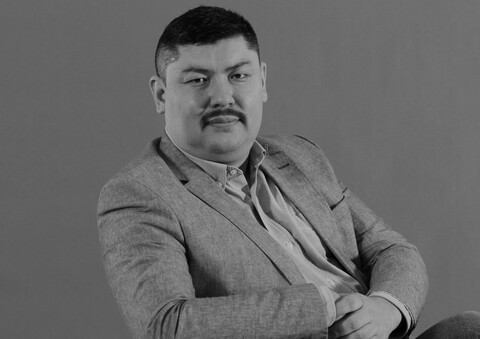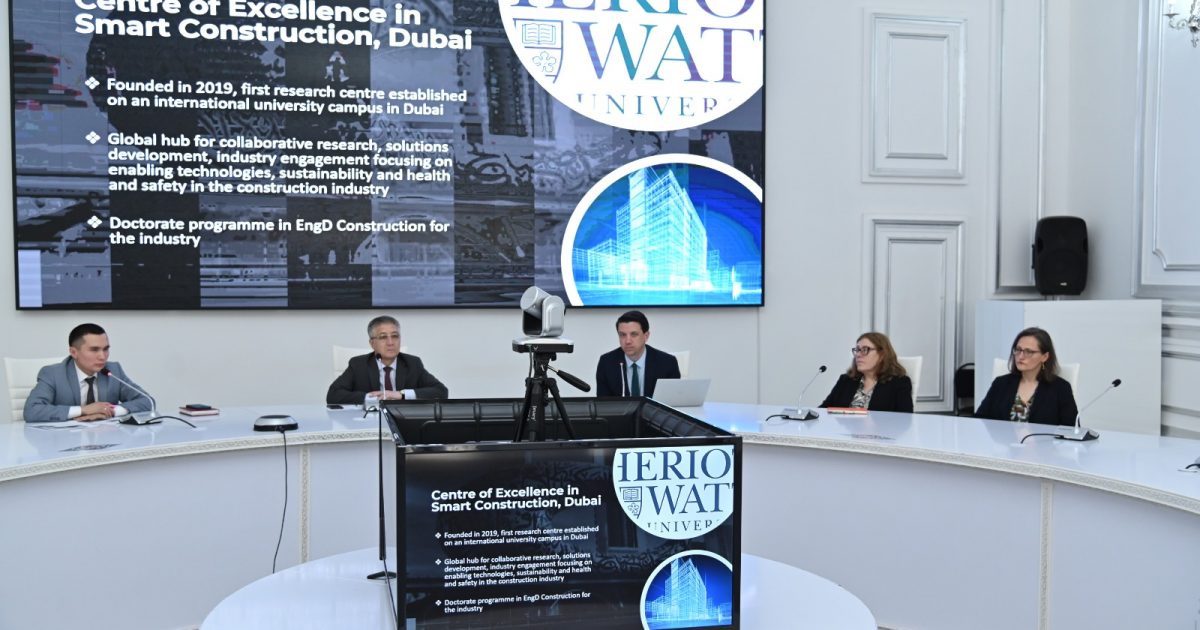ASTANA – The Heriot-Watt University is set to open a branch at the Zhubanov Aktobe Regional University in September with three undergraduate programs for 100 students, as the Kazakh Ministry of Science and Higher Education has embraced major education reforms to provide students with high-quality education.

Assylbek Nurgabdeshov Photo credit Heriot-Watt University.
Assylbek Nurgabdeshov, Assistant Professor of Strategy and Director of Strategy Postgraduate Programs at Edinburgh Business School, Heriot-Watt University, told Kazinform how the university decided to open a branch campus in Kazakhstan.
Heriot-Watt University and academic hub in Kazakhstan
During the special session of the Mazhilis, the lower chamber of the Kazakh Parliament, on Jan. 11 last year, President of Kazakhstan Kassym-Jomart Tokayev instructed to open branches of at least five major foreign universities by 2025.

The representatives of Heriot-Watt during a visit to Aktobe this April. Photo credit: Zhubanov Aktobe Regional University.
Last year, the country opened a branch of Russia’s National Research Nuclear University MEPhI at the Al-Farabi Kazakh National University in Almaty. In addition, the Gubkin Russian State University’s branch has opened at the Atyrau Oil and Gas University, while a program of the University of Arizona was launched at the Kozybayev North Kazakhstan University in Petropavlovsk.
In 2021, the British De Montfort University branch opened its doors in Almaty. Kazakhstan plans to open six more branches this year, including Scotland’s Heriot-Watt University.
Today, almost 30,000 students study at this university, which includes five academic schools and the Edinburgh Business School. The university has campuses in Dubai and Malaysia.
In his state-of-the-nation address in September 2020, Tokayev instructed to provide an annual internship for 500 scientists at leading global research centers. Following this, Nurgabdeshov proposed to the business school’s leadership to invite Kazakh scientists. As a result, eleven Kazakh scientists from six universities are now interning there. Seventeen more researchers have applied for the program this year.
“The exchange of experience is going well and we have managed to create some synergy. The projects they are working on here are important for Kazakhstan and on a variety of topics: from the digital transformation of the university to the carbon tax, which in the future will be introduced on industrial imports to Western countries,” he said.
According to Nurgabdeshov, the project will continue through 2025, and Heriot-Watt University is ready to conduct joint research with Kazakh scientists.
As a Kazakh native, Nurgabdeshov was entrusted to create a program for a five-day trip to Kazakhstan, which included a meeting with the Deputy Minister of Education and Science.
“The university leadership could not build the campus because the university was paying for loans taken for infrastructure in Dubai and Malaysia. They also did not yet know whether it would be Kazakhstan or China, where the Scottish University had three large partner universities. There were also fears of a geopolitical nature. It was a delicate moment,” he said.
In July 2022, Heriot-Watt University Provost Mark Biggs announced his plans to visit Kazakhstan. The university delegation met with Kazakh Deputy Minister of Science and Higher Education Kuanysh Yergaliyev, who reiterated the President’s proposal to create branches of several technical universities in the country’s western region.
“We went to Aktobe, where we were welcomed by the local administration. Later on, during a meeting with Minister of Science and Higher Education Sayasat Nurbek, the leadership of Heriot-Watt University was inspired to choose Kazakhstan,” he said.
The parties agreed to open a branch of Heriot-Watt University at the Zhubanov Aktobe Regional University, signing an agreement at the Feb. 1 meeting of the United Kingdom-Kazakhstan intergovernmental commission in London.
The university’s branch will offer three undergraduate programs for 100 students each. Students that receive high scores at the Unified National Testing can apply for state grants.
“The lectures can be online; we practice this with branches in Dubai and Malaysia. Seminars and practical studies will be conducted by local teachers, who will undergo an internship at Heriot-Watt University. Here we would like to use the resources of the 500 Scientists project or the Bolashak scholarship program. We want to involve employees of foreign companies operating in Kazakhstan with British or American education to conduct practical classes. It will be a good source of practical knowledge for students,” he said.
According to Nurbek, Kazakhstan plans to open 12 branches of foreign universities by 2029, including branches of Türkiye’s Gazi University in Shymkent, the Michigan State University (United States) in Astana, Seoul National University of Science and Technology (South Korea) in Kyzylorda, Tashkent Institute of Irrigation and Agricultural Mechanization Engineers (Uzbekistan) in Taraz, several German universities in Aktau and a branch of Canada’s Tech University.
The article was originally published in Kazinform.

